Piano Dehumidifier: Why Your Piano Needs One (And How to Choose the Right One)
A piano dehumidifier keeps your keyboard action smooth, solves sticking keys, and can even keep your piano in tune longer!
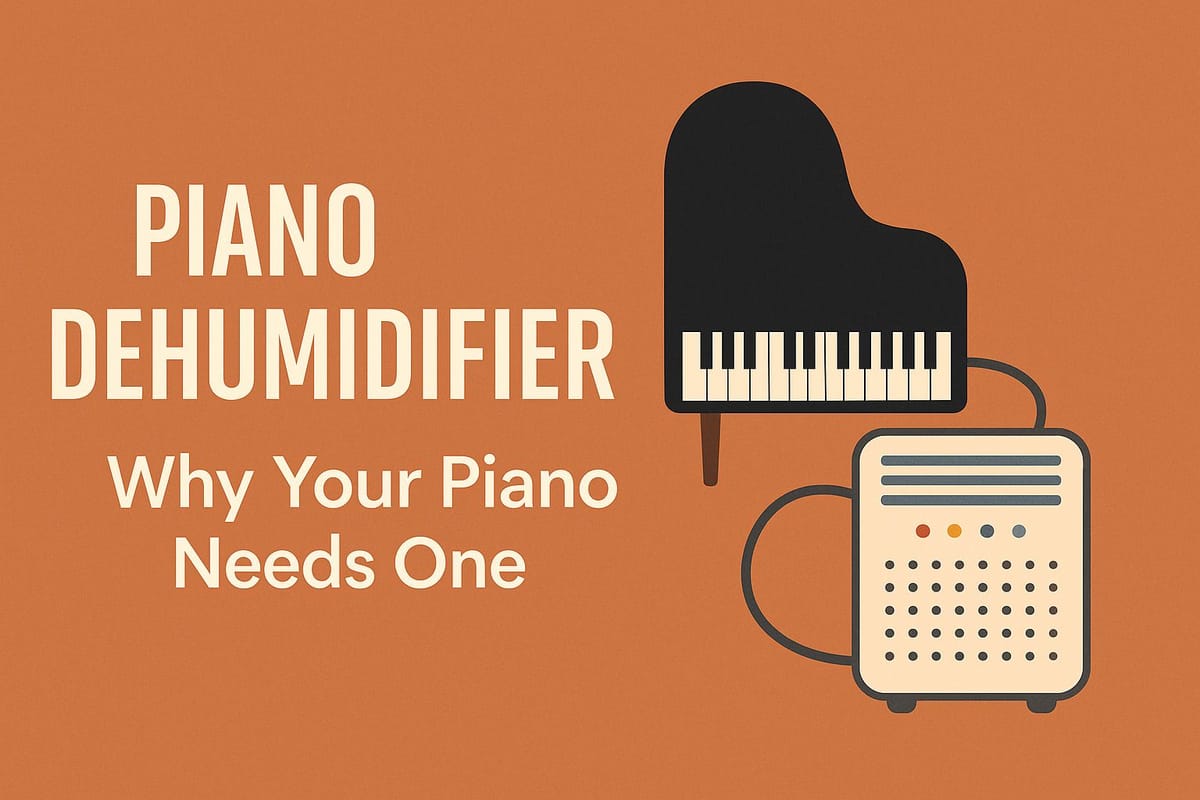
Let’s get something out of the way: your piano hates humidity.
No matter how expensive it is or how carefully you play it, moisture in the air will mess with its wood, strings, tuning, and lifespan.
That’s why if you’re serious about keeping your piano in shape, a piano dehumidifier isn’t optional. It’s essential.
Whether you’ve got a grand, upright, or digital piano, here’s everything you need to know about piano dehumidifiers: what they are, how to pick the right one, and how to use them without frying your instrument (or wasting your money).
What Is a Piano Dehumidifier?
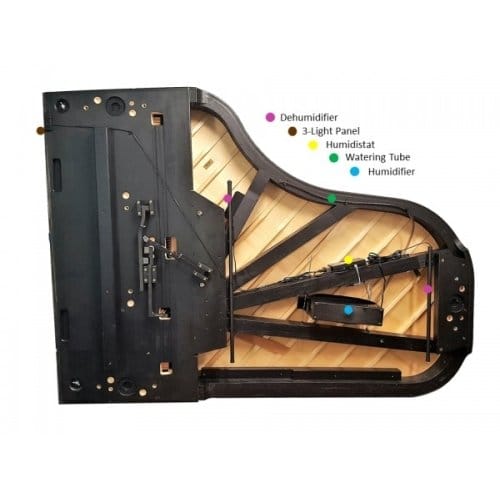
A piano dehumidifier is a device or system that helps control moisture around your piano, usually by removing excess humidity or stabilizing it within a safe range (around 42-50%).
There are two main types:
- Room dehumidifiers: These regulate the entire room’s humidity.
- Piano-specific systems: Installed directly inside or on the piano (like Dampp-Chaser systems).
If you live somewhere humid, or even just seasonally humid, you need one. No question.
Why Humidity Destroys Pianos
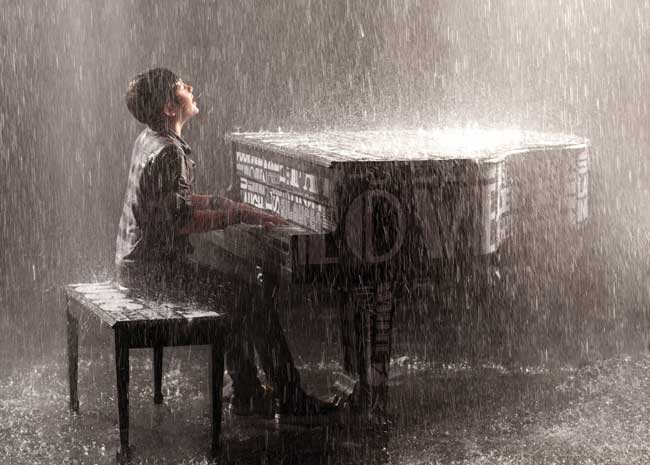
Pianos are 80-90% wood. And wood swells, warps, and cracks when humidity gets out of control.
Here’s what can go wrong:
- Tuning goes haywire (your piano won’t hold pitch)
- Soundboard warps, killing tone quality
- Action parts swell, causing sticky or slow keys
- Rust forms on strings and pins
- Glue joints weaken, risking structural damage
Bottom line? High humidity = slow death for your piano.
On the flip side, too little humidity can also crack the wood. That’s why humidity control, not just removal, is key.
Benefits of Using a Piano Dehumidifier
This isn’t just about comfort or air quality. This is about preserving your piano's voice, value, and life.
Here’s what you get with proper dehumidification:
✅ Longer tuning stability
✅ Better key response and action
✅ Protection against rust and mold
✅ Improved tone clarity and resonance
✅ Extended piano lifespan
✅ Less risk of expensive repairs
It’s cheaper to maintain humidity than to replace a soundboard.

Worth Reading
What Type of Dehumidifier Should You Buy?
There are a few solid options out there, depending on your setup.
1. Piano Life Saver System (Dampp-Chaser)

This is the gold standard for serious pianists. It’s a full humidity control system that mounts inside the piano, includes both a humidifier and dehumidifier element, plus a control unit.
- Best for: Upright and grand pianos
- Pros: Automatic, quiet, safe, long-term solution
- Cons: Must be professionally installed, needs refilling
2. Small Plug-in Rod Dehumidifiers
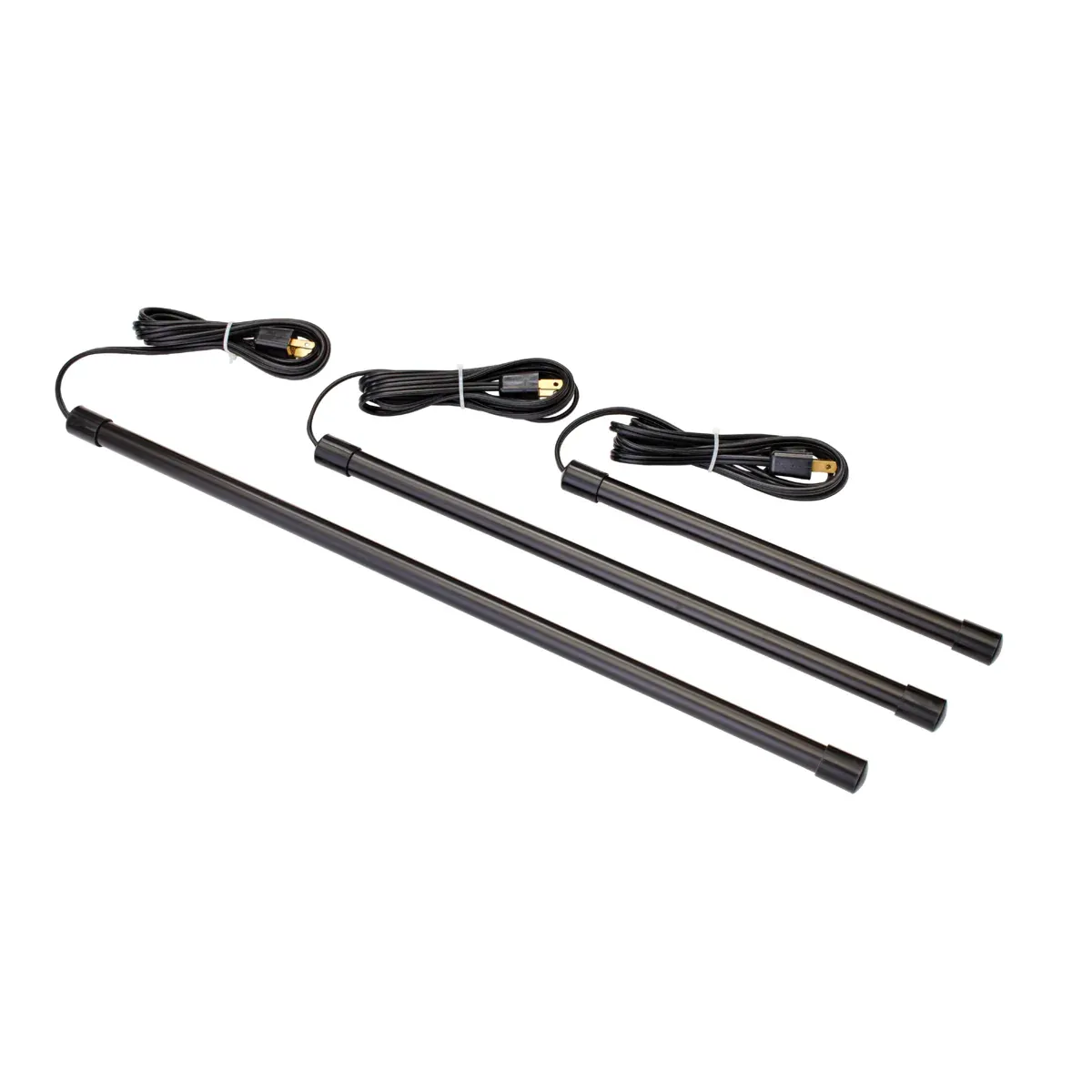
These are heating rods (like the Dampp-Chaser Dehumidifier Rod) that sit inside the piano and gently warm the air to drive out moisture.
- Best for: Uprights
- Pros: Cheap, effective, easy to install
- Cons: No humidifying ability, needs electricity
3. Room Dehumidifiers

If your piano is in a large room or basement, sometimes it's smarter to regulate the whole space.
- Best for: Digital pianos or large studios
- Pros: Good for multi-purpose use
- Cons: No piano-specific control, often noisy
4. Silica Gel or Moisture Absorbers

Passive option. These are moisture-absorbing packets that sit near the piano or inside it.
- Best for: Low-budget or short-term solutions
- Pros: No electricity, silent, cheap
- Cons: Needs regular replacing, limited range
How to Choose the Right One
Here’s a quick cheat sheet when deciding:
| Situation | Best Option |
|---|---|
| Acoustic upright piano | Dehumidifier rod or Dampp-Chaser |
| Grand piano | Dampp-Chaser full system |
| Digital piano in humid room | Room dehumidifier |
| On a tight budget | Moisture absorber (short-term only) |
Also, ask yourself:
- Do you move your piano often? (avoid installed systems)
- Is the room well-sealed? (room units may not be enough)
- Can you maintain water levels or power sources?
Don’t overthink it, just get the one that protects your specific piano type.
Maintenance Tips for Piano Dehumidifiers
Most dehumidifiers are pretty low-maintenance, but don’t forget about them once they’re plugged in.
Here’s how to keep yours doing its job:
✅ If using a Dampp-Chaser:
- Refill the water tank every 1-2 weeks
- Clean the tank monthly with a mild cleaner
- Check indicator lights to ensure it’s working
✅ If using a heating rod:
- Check for dust and lint buildup monthly
- Make sure it stays plugged in (they use very little electricity)
✅ If using a room dehumidifier:
- Empty the tank regularly (or use a hose for drainage)
- Clean the filter monthly
- Use a hygrometer to keep the room around 45% humidity
✅ If using moisture absorbers:
- Replace when color indicator changes or becomes saturated
Pro tip: Keep a cheap digital hygrometer near your piano. It’s your best defense against invisible damage.
Do Digital Pianos Need Dehumidifiers?
Trick question.
Digital pianos are less sensitive to humidity than their acoustic cousins, but they’re still full of circuit boards, sensors, and electronics.
Too much moisture = corrosion, ghost keys, or complete failure.
If your digital piano is in a humid area or basement, a room dehumidifier is a smart investment. It's not mandatory, but definitely a safety net.
Is a Piano Dehumidifier Worth It?
Let’s be honest, pianos aren’t cheap. And neither is tuning, rebuilding, or replacing them.
So if you’re investing thousands into an instrument, spending $50-$400 on a proper dehumidifier is a no-brainer.
It protects tone, playability, and resale value. It makes your piano feel like new every time you sit down. And it saves you from the heartbreak of preventable damage.
Your piano deserves it.
TL;DR
- Humidity wrecks pianos: warps wood, rusts strings, ruins tuning.
- Piano dehumidifiers fight back by controlling moisture.
- Options range from basic rods to full Dampp-Chaser systems.
- Use hygrometers, clean regularly, and monitor performance.
- Acoustic and digital pianos both benefit from proper humidity control.




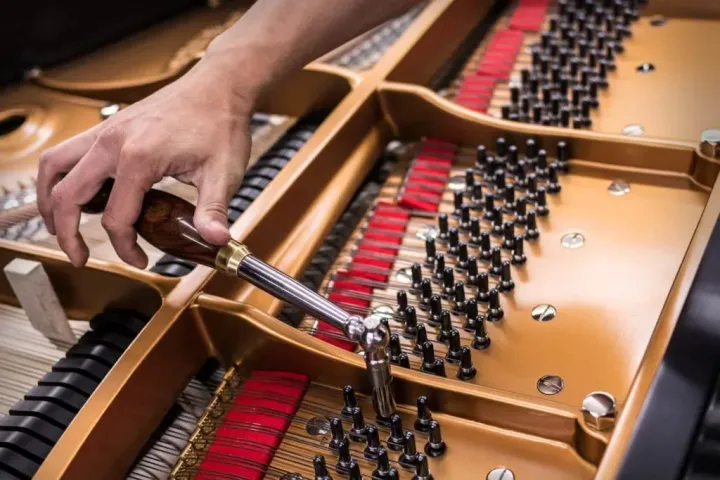
Comments ()